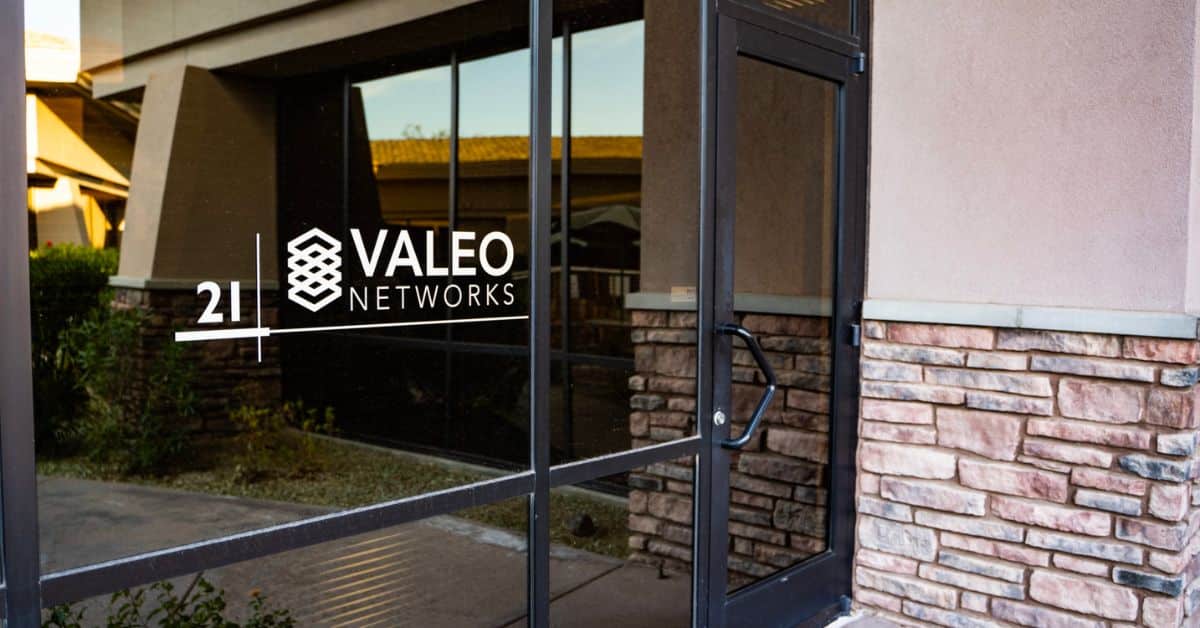Why Your Business Should Be Investigating Hybrid Cloud
IT professionals at businesses with tech-phobic staff have devised an elegant strategy for painlessly migrating their organizations to...
As technology business owners, you have probably heard of Quantum computing. Quantum computing is a rapidly-emerging technology that harnesses the laws of quantum mechanics to solve problems too complex for classical computers. Quantum computing basics are leaving the laboratory and entering the real world. Overall, quantum computing for businesses brings with it both major opportunities and challenges actress the board, especially in the area of cybersecurity. At the same time, quantum computers are still very new and unpredictable. We don't know for sure when a breakthrough will occur, underscoring the importance of understanding quantum computing basics for businesses.
However, we do have some ideas of what might happen and how we can prepare.
Quantum computing basics emphasize the utilization of quantum bits, known as qubits, in quantum computers.This might seem circular, but the way to think about it is this: Classical computers work in binary. On and off. A bit is either on, or it is off. Everything in the heart of your computer is 1s and 0s, that are then converted by apps into words, images, algorithms, etc.
A qubit, the fundamental unit of quantum computing, can be one, zero, or both at the same time until its state is measured. It can link to other qubits in a phenomenon known as entanglement. In other words, each bit can be in a lot more different states than simply on or off. This increases the complexity at the most basic level of quantum computing for businesses and greatly increases the speed of the computer. The downside is that qubits are subject to decoherence, which results in information loss. Because of this, quantum computers have to be protected from noise, vibration, temperature changes, etc, which can lead to errors and randomness.
Until recently, quantum computers have been laboratory curiosities used mostly in research. However, it's now possible to rent time on a quantum computer, in much the same way we rent space on the cloud. Most of the available computers are quantum annealing computers, which are limited to binary optimization problems...these are most useful in scheduling and logistics.
However, in the next few years, more general-purpose quantum computers are going to be more available, marking a pivotal moment in quantum computing for business. More companies are putting money into this, and while many experts believe that commercial applications are "decades away," we can't be sure of this. Technological development is seldom an easy, predictable line. Public interest is also increasing, with a likely impact on funding. People are quantum curious now, sparking a significant interest in quantum computing basics.
Quantum computers will likely not replace desktop computers, phones, etc. Rather, they will be used for applications that require their speed, such as crunching large amounts of data, solving extremely complex math problems, and...
...cracking passwords. So, on to the implications for cybersecurity in the realm of quantum computing.
.jpg?width=278&height=278&name=Gemini_Generated_Image%20(2).jpg)
So, how does all of this impact cybersecurity?
Quantum computers, a fundamental aspect of quantum computing basics, will start to significantly impact cybersecurity when they reach a size of about 1,000 decoherence-protected qubits. One reason why this is not an immediate concern is that the largest quantum computer made is 1,000 qubits without decoherence protection (which increases things by a factor of ten). The biggest challenge in quantum computing in general is scaling up the size of systems, as well as protecting them from decoherence. Larger quantum computers develop more "noise" and thus more errors to be corrected, but also have more qubits to use for correction. Still, creating the large quantum computers needed to be broadly useful remains the biggest current challenge in the field, especially for businesses looking into quantum computing for business applications.
The biggest opportunity and challenge is quantum encryption and decryption, central to quantum computing basics. Quantum computers could theoretically breach classical encryption and create encryption keys that essentially cannot be breached. By this, we mean that solving the encryption key would take trillions of years. Quantum computers thus have the potential to completely disrupt cybersecurity as we know it, with the highest level of encryption essentially requiring time on a quantum computer to create the key, highlighting the relevance of quantum computing for businesses in enhancing their cybersecurity measures.
Quantum computers may also have implications for cybersecurity we can't yet predict, including new security issues that come from the nature of quantum computers that are not likely to be discovered until they see wider use, underscoring the critical intersection of quantum computing, quantum computing basics, and quantum computing for businesses in the evolving landscape of cybersecurity.
Quantum computing brings three key cybersecurity challenges that have to be addressed.
The big fear related to quantum computing is that foreseeable, near-future developments may render current digital encryption unusable. Right now, there are two primary types of encryption:
Symmetric encryption is considered relatively safe. Asymmetric encryption, on the other hand, works with a characteristic of classical computing; it's easy to multiply large prime numbers, but extremely hard to reverse them. Thankfully, we don't have quantum computers that can do it yet either, and experts estimate it's more than a decade away.
At the same time, information stored using these techniques might still be relevant in a decade. And we can't count on that estimate being accurate. Furthermore, it might also take more than a decade to develop quantum-resistant cryptography. We have protocols that will work, but it's going to take time. Also, we can't be 100% sure what will be quantum resistant until we have large quantum computers! We can't test these methods, we can only estimate them.
Furthermore, quantum-resistant encryption is going to be a lot more computationally intensive, which presents an uptake barrier (people don't like to wait) and presents potential sustainability issues.
The counter to this is quantum cryptography, where quantum computers are used to secure communications. It could theoretically prevent eavesdroppers, but it is not yet recommended. It requires special hardware, increases infrastructure costs, and may increase the risk of DoS. It's also likely to be slow and more expensive. China has invested in it, but other companies are not as interested. That said, it might be that the best tool to create quantum-resistant encryption will be a quantum computer generating the actual keys.
.jpg?width=278&height=278&name=Gemini_Generated_Image%20(3).jpg) We're all used to using passwords, although biometrics are coming into use at the consumer level and people are starting to become comfortable with them. Consumer-level biometrics are either based on fingerprint or facial identification.
We're all used to using passwords, although biometrics are coming into use at the consumer level and people are starting to become comfortable with them. Consumer-level biometrics are either based on fingerprint or facial identification.
Quantum computing may render the traditional password obsolete. Brute-forcing a password (using a computer to guess it) takes time, and using a password that cannot be brute-forced typically requires one so complicated humans cannot remember it. With current classical computers, an 18-character password that contains numbers, upper and lower case letters, and symbols, takes 26 trillion years to brute force. Unfortunately, a lot of people are unwilling to use passwords of this complexity.
It's theorized that a quantum computer could crack that password in minutes, although a hacker might be more likely to take the approach of attacking the encryption used to store passwords.
Password obsolescence is already a threat and multi-factor authentication will help with both quantum and classical hacking. That said, quantum computers could also attack the encryption used to store biometric details, rendering those unsafe and necessitating improved keys, likely themselves created by quantum systems. Biometrics and 2FA, though, will continue to become more and more important.
The third major issue to consider is whether quantum computers will have their own new vulnerabilities. Right now, the biggest downside to quantum computing, other than difficulties of scale, is decoherence caused by the physical environment. Breaking in to cause problems with a quantum computer by shaking it, however, seems something more likely to show up in a science fiction heist movie than reality. (However, it may be wise not to locate major quantum computing facilities in earthquake zones).
Remote hacking to change the environment, however, is already a thing. So-called siegeware, where malevolent actors take control of smart building features to, for example, lock people out or render the building uncomfortable, could potentially be used to damage quantum computers by raising the temperature or turning off ventilation. The risk should be lower with decoherence-proof QCs, but this greatly increases the number of qubits needed. A better means of protection might be to air gap the climate control systems so they cannot be hacked from outside the building.
It's also possible that quantum computers will show and develop vulnerabilities we have not predicted. Until quantum computers come into regular use, hackers will not have opportunities to find ways to mess with them. Likely the biggest vulnerability of a quantum computer will be a larger quantum computer, but as we move into the quantum age, innovative threats may emerge.
The rise of quantum computing presents incredible opportunities for businesses, but also new cybersecurity risks that need to be proactively addressed with quantum computing basics in mind. Quantum-resistant encryption, a foundational aspect of quantum computing for businesses, needs to be created and brought into widespread use before large quantum computers exist, and this is already turning into something of an arms race.
Valeo Networks is dedicated to providing the cutting-edge solutions and expertise in quantum computing basics you need to get ahead of the quantum threat and protect your systems and data. Let us help you shape a digital future where protection and innovation go hand in hand with the advancements in quantum computing for businesses.
Partner with us to fortify your digital defenses and get systems in place that will future-proof your cybersecurity against quantum innovation and other threats. Contact us to find out how we can work together to build your innovative future with quantum computing insights.


IT professionals at businesses with tech-phobic staff have devised an elegant strategy for painlessly migrating their organizations to...
-1-1.jpeg)
This insight might help explain why, according to recent research from Gartner, only about 62 percent of small and mid-sized businesses are using...

According to CIO.com (11/2016), the cloud market will accelerate faster than ever in 2017, as enterprises seek to gain efficiencies and scale their...

With cutting-edge technology and quality customer service,
you’ll find everything you need to help your company soar
with Valeo Networks.
1006 Pathfinder Way
Rockledge, FL 32955
Business Hours:
M-F: 8AM-9PM
© 2026 Copyright Valeo Networks. All Rights Reserved.